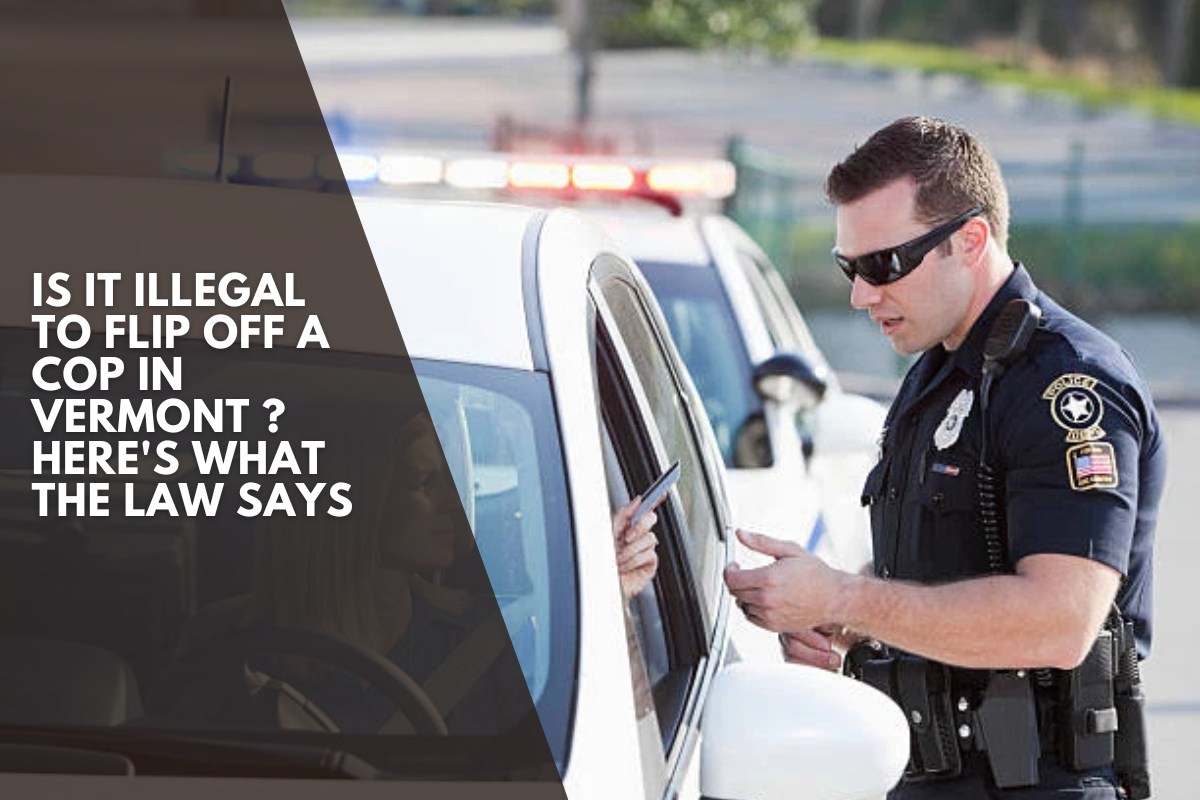Flipping off a police officer—commonly understood as showing the middle finger as a gesture of disrespect or insult—is a form of expressive conduct protected under the First Amendment of the U.S. Constitution. In Vermont, like in many states, this act is not illegal by itself. It falls under the category of free speech and symbolic expression, even if it is offensive or provocative.
First Amendment Protections in Vermont
Vermont courts and legal precedents uphold the right to freedom of speech, including offensive gestures directed at public officials like police officers. In fact, a high-profile case in Vermont involved a man named Gregory Bombard who was arrested for flipping off a state trooper and using profanity.
After legal challenges, Bombard was awarded a settlement recognizing that his First Amendment rights were violated. This case illustrates how Vermont protects citizens’ rights to express dissent, even in provocative ways.
Limits on Speech and Conduct
While flipping off a cop is protected expression in Vermont, this protection does not grant immunity from all consequences if the gesture is part of a larger behavior that violates other laws, such as disorderly conduct or obstructing justice.
For example, if the gesture is accompanied by threatening behavior, physical resistance, or other unlawful acts, the individual could face legal penalties unrelated to the gesture itself.
Police Conduct and Responsibility
Vermont’s Law Enforcement Officers’ Code of Conduct emphasizes respect, professionalism, and upholding human dignity by police officers. Officers are trained to manage encounters with the public, including handling disrespectful or offensive behavior without escalating the situation unnecessarily. Complaints about police misconduct or unlawful arrests related to expressions like flipping off a cop can be filed with police departments or appropriate oversight bodies.
Practical Advice for Interactions with Police
Despite the legal protection for offensive gestures, it is generally advisable to remain calm and respectful in police encounters to avoid misunderstandings or escalation.
Exercising free speech rights should be balanced with caution because police may sometimes misuse their authority, intentionally or unintentionally, leading to tension or arrest. Exercising legal rights while avoiding confrontations can help ensure safer outcomes.
In Vermont, flipping off a cop is not illegal and is protected as free speech under the First Amendment. The 2018 case involving Gregory Bombard set a clear precedent that such gestures, even if offensive, cannot be used by police as justification for arrest or punishment in the absence of other criminal behavior.
However, this protection does not cover acts that go beyond expression to include threats or other illegal conduct. Vermont encourages respectful police-public interactions, but it protects the right to dissent, even when expressed rudely.
Citizens should know their rights clearly and understand that while offensive gestures are legal, staying composed during police encounters remains the safest approach. Complaints or legal recourse are options if one faces unlawful treatment arising from exercising free speech rights in Vermont.
Sources
(https://legislature.vermont.gov/statutes/section/20/151/02371)
(https://www.acluvt.org/en/know-your-rights-police-interactions)
(https://nefac.org/police-misconduct-records-in-vermont/)
(https://www.burlingtonvt.gov/DocumentCenter/View/1303/DD01—Law-Enforcement-Role-and-Authority-Ethics-Organizational-Structure-and-Department-Rules-PDF)
(https://www.thefire.org/news/victory-vermont-man-jailed-flipping-cop-receives-175k-settlement)











